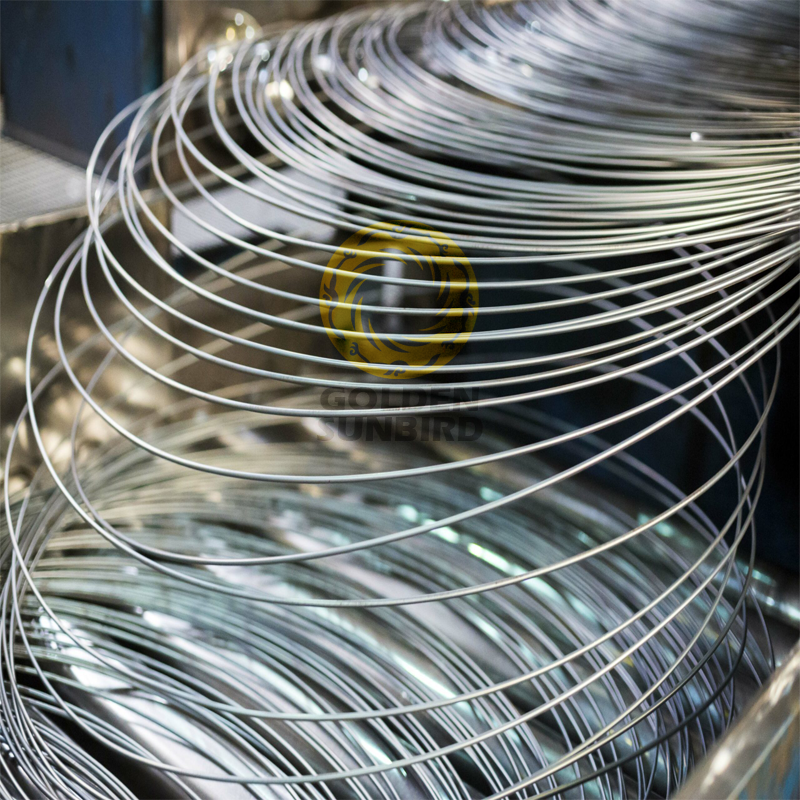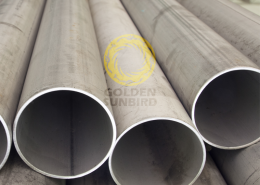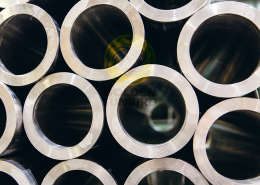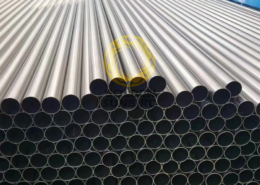| Specification |
Value |
| Standard |
ASTM B392 Niobium and Niobium Alloy Bar, Rod and Wire |
| Grade |
R04200-Type 1, R04210-Type 2, R04251-Type 3, R04261-Type 4 |
| Finish |
Clean, bright finish, free of defects and surface imperfections. |
| Type |
Bar, Rod, Wire |
| Bar |
Material less than 6 in. (152.4 mm) in width and 0.187 in. (4.75 mm) or greater in thickness, with a rectangular cross-section supplied in straight lengths. |
| Rod |
Material 0.125 to 2.50 in. (3.18 to 63.50 mm) in diameter, in round, hexagonal, or octagonal cross sections supplied in straight lengths. |
| Wire |
Material 0.020 to 0.124 in. (0.51 to 3.15 mm) in diameter, furnished in coils or on spools or reels. Material less than 0.020 in. (0.51 mm) in diameter is not covered by this specification. |
| Inspection Certificate |
EN 10204 Type 3.1 (Mill Test Certificate), EN 10204 Type 3.2 (Witness Testing or 3rd Party Inspection) |
| Tests |
Chemical analysis, Tensile test, Hardness test, and Microstructural examination |
Key Features
Superconductivity: Niobium plays a role in superconductivity applications when cooled to extremely low temperatures, allowing for efficient electricity transmission.
High Melting Point: These bars, rods, and wires resist high temperatures.
Good Strength and Ductility: Similar to sheet and plate, they possess a good balance of strength and ductility, allowing for forming and shaping while maintaining integrity.
Corrosion Resistance: Niobium exhibits good corrosion resistance in many environments.
Packing
Coils or Spools: Niobium and niobium alloy bars and wires are often wound onto coils or spools for easy handling and transportation.
Wooden Crates or Boxes: For larger quantities or bulk shipments, bars and wires are packed in sturdy wooden crates or boxes.
Individual Wrapping: Each bar or wire may be wrapped with protective materials such as plastic film or paper to prevent scratching and corrosion during transit.
Application
R04200 – Type 1 (Reactor Grade Unalloyed Niobium)
Material: Pure niobium with a high purity level, suitable for applications in nuclear reactors.
Applications: Given its excellent corrosion resistance, especially to liquid metals, and its inability to absorb hydrogen easily, R04200 is often used in nuclear reactors as control rods, heat exchangers, and structural components. Its high melting point and good thermal conductivity make it suitable for high-temperature aerospace applications, including rocket nozzles and jet engine components.
R04210 – Type 2 (Commercial Grade Unalloyed Niobium)
Material: This is also pure niobium but with a slightly lower purity level than reactor-grade, making it more cost-effective for less critical applications.
Applications: It’s widely used in the chemical processing industry for making corrosion-resistant components like pipes, fittings, and linings. Other applications include superconducting magnets and cavities for particle accelerators, jewellery, and mobile phone components, owing to their excellent workability and bio-compatibility.
R04251 – Type 3 (Niobium-Titanium Alloy)
Material: Niobium alloyed with approximately 1% titanium.
Applications: This alloy enhances the strength and mechanical properties of niobium. It’s commonly used in superconducting magnets for MRI machines, particle accelerators, and nuclear magnetic resonance equipment. The alloy’s superconducting properties at relatively high temperatures and fields make it ideal for these applications.
R04261 – Type 4 (Niobium-Zirconium Alloy)
Material: Niobium alloyed with about 1% zirconium.
Applications: The addition of zirconium increases the alloy’s strength, ductility, and corrosion resistance. This makes it especially suitable for the aerospace industry, where it is used in engine parts, rocket nozzles, and heat shielding. It’s also used in the nuclear industry for reactor core and control system components due to its good thermal conductivity and resistance to corrosive by-products.








